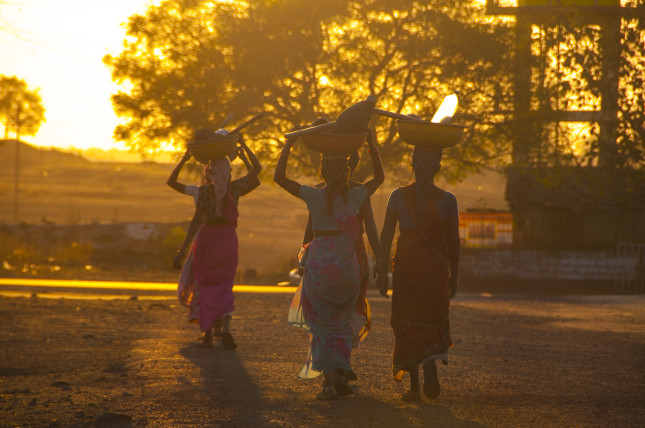-
At the Intersection of Climate Change and Environmental and Reproductive Justice
July 29, 2020 By Amanda King“Reproductive justice is the right to reproductive health care, and the right to have children or not, the right to the healthiest possible pregnancy and birth, and the right to raise children in a safe and healthy environment. These rights will be challenged by climate change, including increasing temperatures,” said Linda Goler Blount, President and CEO of the Black Women’s Health Imperative, at a recent webinar on the intersections of environmental and reproductive justice on maternal health, climate change, and birth outcomes. The webinar was held on Juneteenth, the holiday commemorating the end of slavery in the United States, and many panelists’ remarks amplified the significance of the date. “Make this Juneteenth another beginning. One where we commemorate the end of climate injustice for Black and Brown people who bring life into this world,” said Blount.
“Black women have the highest risk of preterm delivery from heat,” said Rupa Basu, the Chief of Air and Climate Epidemiology Section at the Office of Environmental Health Hazard Assessment for the California Environmental Protection Agency, citing results from a co-authored study that found for every 10℉ increase in temperature in California, there is an average increase in pre-term delivery of 8.6 percent; for Black women, there is an average increase of 14.9 percent. Mothers who are young, Black, Hispanic, have co-morbidities like hypertension and diabetes, or drink alcohol and smoke, are among the most vulnerable to preterm delivery from higher temperatures in California.
Maternal health workers may help reduce pregnant people’s heat vulnerabilities. A project that addressed heat impacts on maternal health in El Paso, Texas, found that by training maternal health workers (midwives, doulas, lactation specialists, and childbirth educators) on climate and heat risks and the behavior changes needed to reduce these risks, workers were better equipped to prepare and prevent potential adverse birth outcomes for their patients and communities.
From The Gambia to the United States, pregnant women farmers are disproportionately impacted by heat stress. In The Gambia, results of an unpublished study found that pregnant women farmers who work in extreme heat for three to four hours or more a day experienced increased heart rates and their fetuses saw increased heart rates and even fetal distress compared to the fetal heart baseline. “The U.S. has no federal heat standards to protect workers,” said Charo Valero, Florida State Policy Director of the National Latina Institute for Reproductive Justice. Legislation has been introduced in the U.S. to create a federal standard for protecting outdoor workers from exposure to dangerous heat and ensure U.S. immigrants, which account for the majority of U.S. farm workers, receive health care services, including sexual, reproductive, and maternal health services.
Other legislation exists to address the maternal health crisis and its links to environmental justice, such as the Black Maternal Health Momnibus Act of 2020, which outlines nine bills focused on addressing the maternal health crises in the United States. The Social Determinants for Moms Act of 2020 mandates studies on the impact of water, air quality, extreme temperatures, and pollution on maternal and infant health outcomes, “which is crucial to better understanding the relationship between climate change and maternal health, particularly as it impacts black women,” said Lexi White, Senior Policy Manager at In Our Own Voice: National Black Women’s Reproductive Justice Agenda, a policy initiative partnership.
“Race is not a risk factor, racism is a risk factor, and now we add a new stressor to that intersection—climate, specifically heat,” said Blount. “As we contextualize the relationship between conditions of extreme heat, climate change, and impact on maternal health outcomes for vulnerable communities—Black women and women of color in particular—we must continue to shape an intersectional narrative around Black maternal health in the community, in the media and with our legislators, in a way that humanizes our experiences and considers the full reality of the environmental factors and harms at play where we live and where we raise families,” said White.
Read more:
- Research, co-authored by panelist Rupa Basu, shows increased climate change-related exposures cause adverse pregnancy outcomes.
- The racial disparities and trends of U.S. maternal mortality are alarming.
- For residents of the Philippines, how do reproductive health needs become a priority as the threat of climate change grows?
The full event can be viewed here.
Sources: Encyclopedia Britannica, Environmental Research, University of Arizona, U.S. Congress, U.S. Department of Agriculture, Wellcome Open Research
Photo Credit: Shutterstock.com, All Rights Reserved.
 A Publication of the Stimson Center.
A Publication of the Stimson Center.




